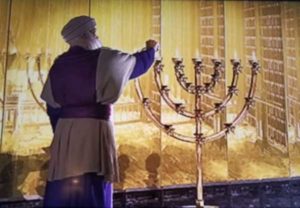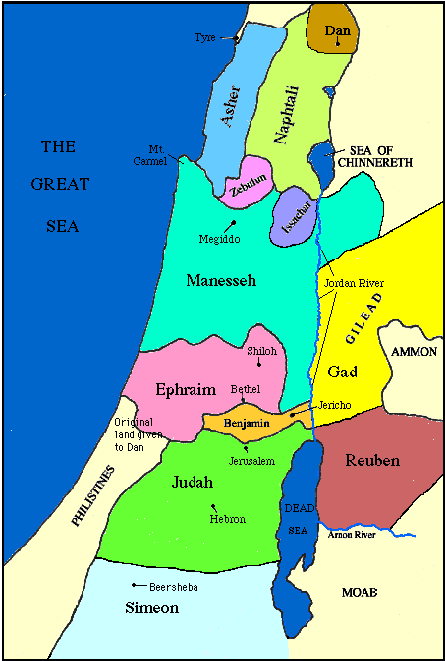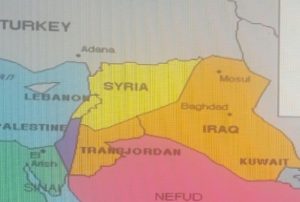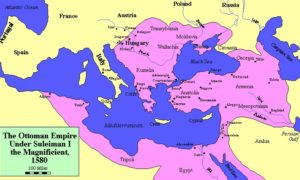Don’t think that you (Esther) alone will be saved out of all the Jews just because you are in the king’s palace. If you keep silent at this time…relief and deliverance will come to the Jews from another source… “Who knows whether you have come to the kingdom for such a time as this.”
 It was the time when the Jews were in the diaspora in the Persian-Madai kingdom under King Ahasuerus’ rule. The Jews enjoyed religious freedom, and one Jew, Mordechai even served at the king’s court gate. Hadassah was an orphan girl adopted by her cousin Mordechai, who grew up to be a beautiful maiden.
It was the time when the Jews were in the diaspora in the Persian-Madai kingdom under King Ahasuerus’ rule. The Jews enjoyed religious freedom, and one Jew, Mordechai even served at the king’s court gate. Hadassah was an orphan girl adopted by her cousin Mordechai, who grew up to be a beautiful maiden.
The king loved banquets to show off his riches and fortune. In one of those banquets, he wanted to show off his beautiful Queen Vashti and called for her, but she refused to come. As punishment, the king’s advisors said Queen Vashti must be replaced, and for the king to gather the beautiful virgins in his kingdom from which to choose the queen who would replace Vashti.
Beautiful Hadassah, (Her name was changed to Esther in Persia), was also taken, and her cousin, Mordechai instructed her not to reveal her Jewish heritage. From all the beautiful virgins, she was the king’s favorite and he chose her to be his new queen.
It happened that King Ahasuerus honored a descendant of Amalek called Haman the Agagite, elevating him and giving him a seat of honor higher than that of all the other nobles. By the king’s order, all who were in the king’s court had to bow down to him. However, one Jew wouldn’t bow. This was Mordechai, Esther’s cousin. That enraged Haman. When Haman found out that Mordechai was Jewish, and as he learned more about the Jewish people, his hatred for the Jews grew.
Haman looked for a way to destroy all of the Jews throughout the whole Persian kingdom. He came before the king and said: “There is a certain people dispersed among the peoples in all the provinces of your kingdom who keep themselves separate. Their customs are different from those of all other people, and they do not obey the king’s laws; it is not in the king’s best interest to tolerate them. If it pleases the king, let a decree be issued to destroy them, and I will give ten thousand talents of silver to the king’s administrators for the royal treasury.” The king took off his signet ring and gave it to Haman the Agagite, the enemy of the Jews. He told him to keep the money and that he could do with the people as he pleased.
The Pur (the lot) was cast and fell on the thirteenth of the month of Adar. In one day all the Jews were to be, according to the words of the decree, “killed, destroyed, and annihilated,” (Esther 3:13) a law that couldn’t be altered because: “in the name of King Ahasuerus it was written and sealed with the king’s signet ring.” (Esther 3:12c)
When Mordechai learned of this terrible decree, he put on sackcloth and ashes. When Esther heard of this, she was very concerned for her cousin and insisted on knowing why he was in such a state. Mordechai informed Esther of the coming disaster for the Jews and urged her to go to the king and plead to rescue them. Esther explained that approaching the king without being invited would risk her life. Mordechai insisted, saying that if she failed to intervene, relief and deliverance would come to the Jews from elsewhere, but that neither she nor her family would survive. Furthermore, he said, “and who knows but that you have come to a royal position for such a time as this?”
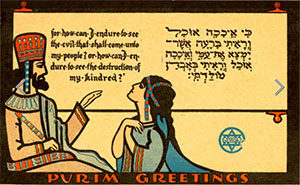 When Esther heard of the terrible decree to annihilate all the Jews in one day, she realized that the reason she was chosen to be the queen of Persia was for such a time as this; to be used by God for the salvation of His people. She called for the entire Jewish community in the capital city of Shushan to stand with her in prayer and fasting for three days as she risked her life for the chance of saving her people. She would go unlawfully before the king, uninvited. Esther then proclaimed, “and if I perish, I perish.”
When Esther heard of the terrible decree to annihilate all the Jews in one day, she realized that the reason she was chosen to be the queen of Persia was for such a time as this; to be used by God for the salvation of His people. She called for the entire Jewish community in the capital city of Shushan to stand with her in prayer and fasting for three days as she risked her life for the chance of saving her people. She would go unlawfully before the king, uninvited. Esther then proclaimed, “and if I perish, I perish.”
God didn’t just use her beauty but also gave her a strategy. On the third day of the fasting, Esther put on her royal attire and stood in the inner court in front of the royal throne in the hall where the king was sitting. When the king saw her, he remembered how much he loved her and extended the royal, golden scepter to her. Esther approached and touched the tip of the scepter. The king asked her lovingly what her request was, saying that he would grant it even up to half the kingdom. Her plan went into action; first, her request was simply to invite the king and his favorite Haman to a private banquet she had prepared for them that day. As they were enjoying the food and wine, the king asked her again what her request was. Again Esther replied that her request was for him and Haman to come to a private banquet the next day and that she would reveal her request at that time.
Haman was delighted to be invited once again to a banquet with the king and the queen. But when he passed by the court’s gate and Mordechai didn’t bow down to him, his anger and hatred against the Jews arose again. When he got home, Haman boasted with pride to his loved ones about all his riches and the honor he received for being in such a high position that the queen invited only him, besides the king, to her banquet. But, he complained that all this was worthless when this Jew Mordechai refused to bow down and honor him. His wife suggested he build a high pole, and next morning ask the king to hang Mordechai on it. Then he could attend the banquet and enjoy himself. This suggestion delighted Haman, and he set up the pole.
That night the king couldn’t sleep and asked his servant to read to him from a book of records. The servant read to him about the event when two of the king’s officers and guards conspired to assassinate him. It was recorded that Mordechai had exposed their plot and saved the king’s life. The king asked what was done to give Mordechai honor and recognition for this act, and the answer was – nothing. So the king asked who was in the court, and at that moment Haman entered the court. “Bring him to me,” ordered the king. Then the king asked Haman what should be done for a man whom the king is very pleased to honor. In his pride, Haman assumed the king must mean him, for who else was there that the king would rather honor than himself?
So Haman recommended that the person whom the king delights to honor be dressed in a royal robe the king had worn and put on a royal horse the king had ridden, and a royal crest be set on his head. Then, he should be taken on horseback through the city streets, with a high official proclaiming in a loud voice, “This is what is done for the man the king delights to honor.” The king commanded Haman to go at once and do exactly as he suggested for Mordechai the Jew who sat at the court’s gate, without neglecting to do anything that he, Haman had recommended.
Haman had to do for Mordechai the Jew, what he thought should be done for him. He was so humiliated that afterward, he rushed home to tell it to his wife and loved ones. His wife Zeresh and his advisers said that this would be the beginning of his ruin because if Mordechai was a Jew, Haman would not be able to stand against him, and in the end, he would be ruined. At that moment, the king’s servants came to take him to Esther’s banquet.
While they were drinking wine at the banquet, the king asked Esther, “Now tell me what is your petition? It will be given you. And what is your request? Even up to half the kingdom, it will be granted.”
Esther revealed that she was Jewish and her request was for the king to spare her life and the lives of her people, as it was ordered to annihilate all the Jews in his kingdom. Apparently, the king had forgotten all about it and asked who would dare to do such a thing. Queen Esther pointed to Haman and said, “It was that wicked man, the enemy of the Jews who ordered it.’’
When the king learned it was the wicked Haman who ordered the killing of his beloved queen and the queen’s people, he was furious and went out to the royal garden to cool off. Haman was horrified and fell on the sofa the queen was reclining on. As he was pleading for his life, the king entered the room and saw Haman on top of his queen. The king was furious thinking Haman tried to molest Esther in his own palace. One of his servants spoke about the high pole Haman had set up on which to hang Mordechai the Jew, the very man who had saved his life. The king ordered his servants to take Haman and hang him on the pole meant for Mordechai. So they did, and the king’s anger subsided.
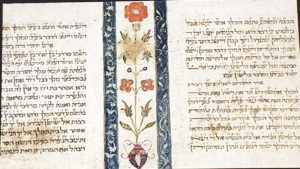 God always does what He says He will do in His Word. Hundreds of years before the story of Esther, the Lord told Moses, “I will completely blot out the memory of Amalek from under heaven.” (Exodus 17:14) King Saul disobeyed God and didn’t kill all the Amalekites but spared the life of King Agag. Even though the prophet Samuel did kill him, apparently some of his family lived on. Haman was the descendant of Agag the Amalekite.
God always does what He says He will do in His Word. Hundreds of years before the story of Esther, the Lord told Moses, “I will completely blot out the memory of Amalek from under heaven.” (Exodus 17:14) King Saul disobeyed God and didn’t kill all the Amalekites but spared the life of King Agag. Even though the prophet Samuel did kill him, apparently some of his family lived on. Haman was the descendant of Agag the Amalekite.
The king promoted Mordechai to a high position and gave him his signet ring to reverse the decree and save the lives of the Jews. God has turned the mourning of His people to ecstatic joy. Purim “should be remembered and kept throughout every generation, every family, every province, and every city, that these days of Purim should not fail to be observed among the Jews, and that the memory of them should not perish among their descendants.” (Esther 9:28)
 Hanukkah (dedication) is a holiday of miracles. It commemorates the miraculous victory of the small army of brave Jews over the much larger and better-equipped Syrian/Greek army and the liberation of the Holy Temple in Jerusalem from the hands of the pagan ruler Antiochus Epiphanes.
Hanukkah (dedication) is a holiday of miracles. It commemorates the miraculous victory of the small army of brave Jews over the much larger and better-equipped Syrian/Greek army and the liberation of the Holy Temple in Jerusalem from the hands of the pagan ruler Antiochus Epiphanes. 
 The other miracle happened on the evening of November 12, just before Hamas fired about 500 rockets at nearby Israeli areas, including the city of Ashkelon that suffered most of the hits. A Kornet anti-tank guided missile (they are very precise) was fired from the Gaza Strip at an Israeli bus just several kilometers from the Gazan border. The precise hit caused the bus to explode and burn.
The other miracle happened on the evening of November 12, just before Hamas fired about 500 rockets at nearby Israeli areas, including the city of Ashkelon that suffered most of the hits. A Kornet anti-tank guided missile (they are very precise) was fired from the Gaza Strip at an Israeli bus just several kilometers from the Gazan border. The precise hit caused the bus to explode and burn.